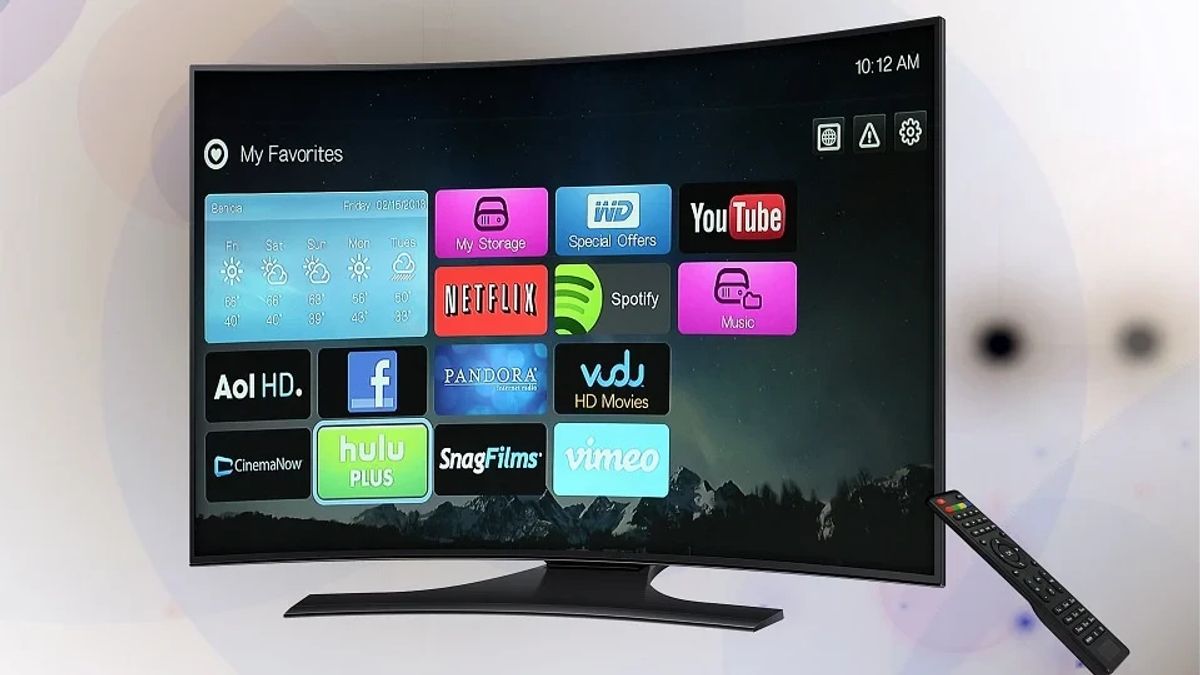JAKARTA - For several years, there has been a heated discussion between Android TV and Smart TV. For some people, the convenience of a smart TV trumps the advantages of Android TV. Even for many other purposes and purposes, Android TV is the only method to enjoy web content on a bigger screen thanks to all the great things.
In order to meet the ever-increasing needs of consumers, the television industry seems to have been chasing technological updates, making it difficult for an individual to choose which one will decorate his living room or bedroom over the years.
Any television that can get additional programming via the internet is called a smart TV. This is the same as having a computer attached to your television set. In fact, any TV that can access online information, regardless of the operating system it's running on, can be considered a smart TV. In this sense, then Android TV is a smart television (smart tv) too.

Smart TV and Android TV have a mutually exclusive relationship. Android TV has almost all the functions of a smart TV but runs on the Android operating system. When compared to Smart TVs, some TV makers have their own built-in operating system. Smart TVs run multiple operating systems, including Samsung's Tizen OS, LG's WebOS, Apple TV's tvOS and more. All of these televisions are basically smart televisions.
Supported Apps
Starting with the App Library, Android TV has access to many apps thanks to Google Play Store support. You will find all the applications you normally use on your smartphone. Everything is available on Android TV, from YouTube to Netflix to Hulu and Prime Video. The best aspect is that all the apps are optimized for the TV platform and have easy-to-use controls.
For smart TVs running Tizen OS or WebOS, app support is of course limited. There aren't many apps in the app store, except for a few top entertainment apps like YouTube, Prime Video, and Netflix.
The next item to consider is that, compared to Android TVs, smart TV updates are harder to come by. Android TV development, on the other hand, is quite active, with developers constantly pushing new updates to the various available apps.
OS Update
In conclusion, Android TV is better than smart TV in terms of app enhancements and media streaming resources because the development is quite active and developers regularly push new updates to various apps. Also, when connected to WiFi, Android TV enables automatic app upgrades, whereas smart TVs find it difficult to do so.
Voice Assistant
The built-in Google Assistant helps Android TV stand out in terms of functionality, allowing users to easily switch channels and search for shows using voice control without using any input device. Smart TV users, on the other hand, have to enter content using the full-size keyboard as voice control is not available.
Screen Mirroring
Thanks to the obvious Google Assistant and built-in Chromecast, you can stream your favorite apps straight to Android TV from your Android phone. This is also known as Google cast. However, without additional projection equipment, this is difficult to achieve on a smart TV, resulting in additional costs.
Final Conclusion
The features that differentiate Smart TVs from Android TVs are actually minor. Android TV is similar to Smart TV, but offers additional options in terms of additional features and app libraries. Because fewer applications are launched, Smart TVs with easy-to-use and simple interfaces usually perform better and run faster than Android TV.
Both are popular television items in the market today, and each has its own qualities, both advantages and disadvantages. Now back to you to determine which is the most appropriate choice for your television!
The English, Chinese, Japanese, Arabic, and French versions are automatically generated by the AI. So there may still be inaccuracies in translating, please always see Indonesian as our main language. (system supported by DigitalSiber.id)









